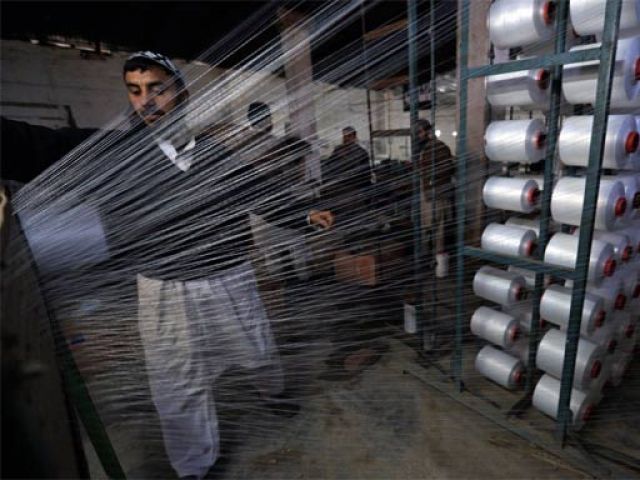Syeda Masooma
Prime Minister Nawaz Sharif announced a package of incentives worth Rs 180 billion on Tuesday, aimed at reviving falling exports of the country. While the package includes measures related to several economic sectors, including power generation and infrastructure while the textile industry took the cake.
One major point of the package was the abolition of custom duties and Sales Tax on cotton imports. The Customs Duty on man-made fibers and Sales Tax on textile machinery imports has also been removed. The new duty rates, as recommended by the package, are 7pc for textile garments, 6pc for textile made-ups, 5pc for processed fabric, and 4pc for yarn and grey fabric. The sports goods, and leather and footwear are to be taxed at 7pc.
According to the AKD Research report, “The rebate rate has been enhanced in the range of 4-7pc on the whole FoB (Freight on Board) value of different textile products (4/5/6/7pc on yarn/fabrics/made-ups/garments) as opposed to the current policy where rebates are allowed on incremental exports (if export growth exceeds 10pc).” The report further stated that the potential effects of this rebate revaluation would be positive. The key beneficiaries of this policy are expected to include GATM (Gul Ahmed Textile Mills Ltd), NML (Nishat Mills Ltd), MSOT (Masood Textile) and NCL (Nishat Chunian), KTML (Kohinoor Textile Mills Limited), SFL (Sapphire Fibers Limited), ADMM (Artistic Denim Mills Limited), and CRTM (Crescent Textile Mills Limited), on account of higher percentage of export revenues in the sales and their share in total exports.
The Topline Securities report concurs by saying that this package of the government targets to double the existing textile exports of around $12bn in next 5 years. The rationale for the proposed package was losing competitiveness among the regional exporters. “As per the minister, the cost of doing business including gas, power tariff, GDIC, Sales Tax and Pak rupee exchange rate created pressure on export sectors in general and textile in particular,” the report added.
However, there are also some counter expectations brimming in the market. Speaking to Pakistan Today, analyst Mansoor Ahmed said that while this package comes as a positive measure for the textile industry, it is not so good for other sectors. “The abolition of subsidy on fertilizer sector would spell a negative impact on that sector as was evident by the stock exchange movement on Tuesday. Around 55 million shares of the fertilizer industry were traded because of stock price deterioration.”
Another analyst shared his doubts over the package being able to do any good to the textile industry. “Reducing rebates and abolition of taxes are the measures to benefit the domestic industry, they will not necessarily lead to improvement in exports right away.” He said that the major fault in Pakistan’s exports loosing competitiveness was the exchange rate deterioration. “The only pertinent and direct solution to reviving exports should be the adjustment of our exchange rate. These measures will undoubtedly enhance the business of textile industry, but they cannot guarantee the competitiveness in international market.”
The announcement comes in the wake of All Pakistan Textile Mills Association (APTMA) Chairman Aamir Fayyaz, proposing several measures for the revival of Pakistan’s textile industry only a few days ago. They included removal of Customs Duty on imported cotton, duty-free imports of man-made fabrics, tax rebates and tax refund on packaging material under zero-rated regime among others.
Prior to the announcement, Council of All Pakistan Textile Associations Chairman Muhammad Zubair Motiwala had also said that the government was expected to announce incentives that would allow for a reduced cost of doing business.
While the initial response of the members of textile industry remained positive, the Pakistan Stock Exchange movement cast doubt on the reception of the package being positive. The only clear winner of Tuesday’s trading seemed to be the textile industry, while the fertilizer and banking sector showed little positive outlook. The details of the package have yet to see the light of the day, but the analysts agree that the package is a potential treat for domestic industry. But the time will reveal its impacts on the exports or other economic factions of the country.




